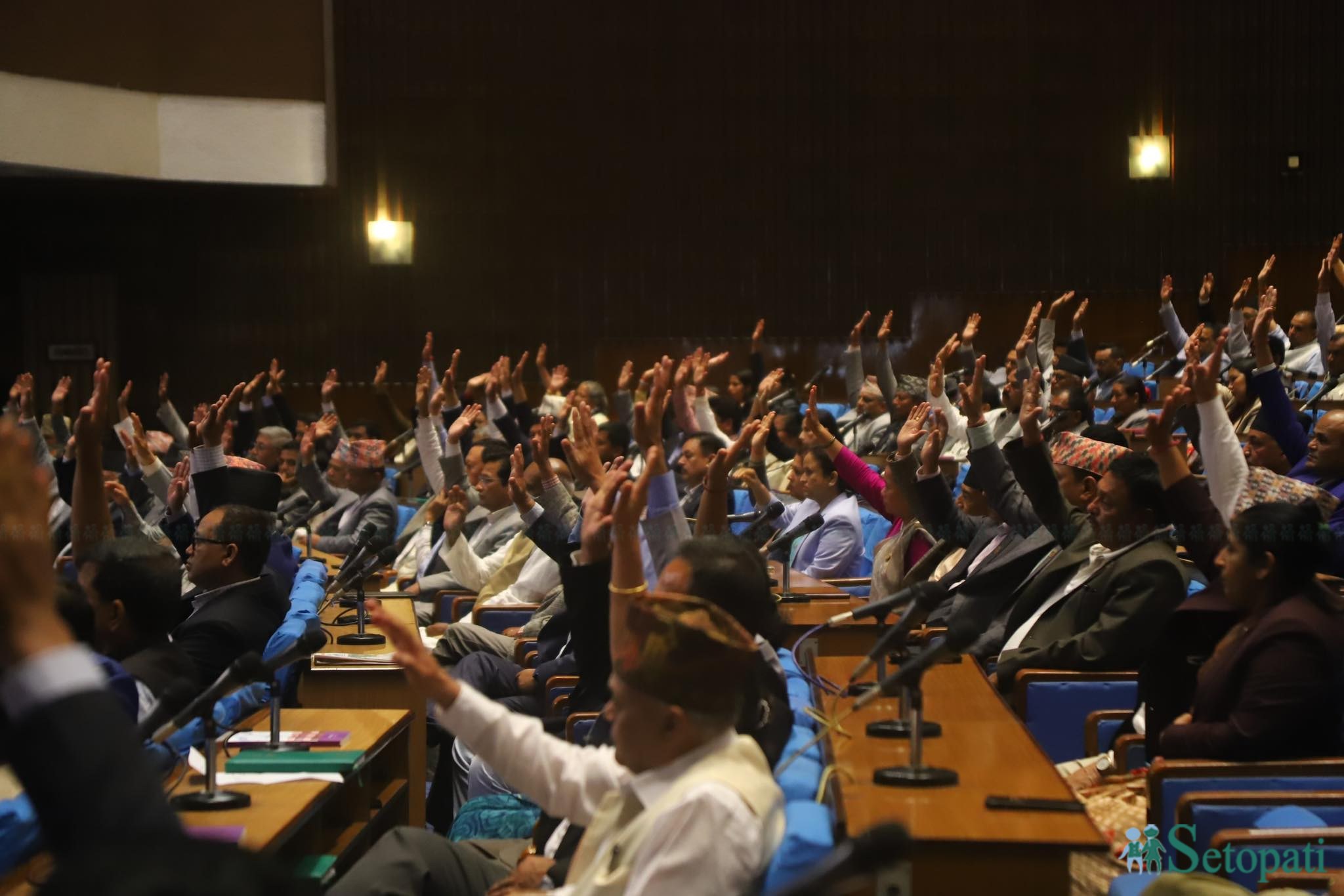A provision in the bill for amendment of the Money Laundering Prevention Act recently passed by the House of Representatives (HoR) and sent to the National Assembly has been slammed for paving the way to legalize illegally amassed wealth by paying tax.
Rastriya Swatantra Party (RSP) and RPP lawmakers voted against the bill that was passed through majority.
RSP lawmakers Sumana Shrestha, Swarnim Wagle, DP Aryal and others have slammed the proposed amendment on section 28 of the Money Laundering Prevention Act pointing that it tries to legalize illegal income. They have pointed that the Department of Money Laundering Investigation is weak and has only brought 32 cases until now, and claimed that the amendment paves the way to legalize illegally amassed wealth.
Clause 28 about assets deemed to have been gained by laundering states “In case assets of a person sued for an offense under this Act is found to be unnatural in comparison to the income source or financial condition or one is living a life unnaturally high in standard or proved to have donated, granted, gifted, provided loans, contribution or endowment more than his/her capacity, he/she is required to prove the source of earnings and in case he/she fails to prove so he/she shall be deemed to have earned such assets by committing offenses under this Act.”
The Act puts the burden of proof to establish that the source of earnings is legal on the person sued, and such earnings whose source could not be proved is confiscated by the state even if the person sued is not found guilty of committing any offense.
What we have to remember here is provisions on the Money Laundering Prevention Act should comply with international anti-money laundering laws.
Setopati talked with former chief of the Department of Money Laundering Investigation Rup Narayan Bhattarai, who has worked on the issue for a long time, about the controversy.
Bhattarai has stressed that the current amendments have been made to make the law consistent with international anti-money laundering laws and not to pave the way to legalize illegally amassed wealth as accused.
“There were not and are not provisions to legalize wealth amassed through crime or illegal earnings by taking tax as the lawmakers now have stated. It has only brought a provision to let someone off by charging tax if the wealth is not found to have been amassed by committing crime, but the source of the wealth also cannot be proved,” he has added. He has stressed that the wealth will still be confiscated if found to have been amassed through illegal means even after the amendment.
He has revealed that the previous provision of confiscating the wealth whose source cannot be proved even if the wealth is not found to have been amassed through illegal means is not consistent with international anti-money laundering norms, and the amendment has been made to align the Nepali law with international ones.
He has referred to the basic concept of money laundering to explain the issue saying that money laundering is the process of hiding the source of money obtained from illegal means and investing the money on legal businesses to show that it has been earned from that investment to avoid prosecution, conviction if found guilty, and confiscation of the illegally amassed wealth.
He has given many examples and explained that money laundering is just a secondary offense of laundering illegally amassed wealth. The primary offense always remains the illegal way through which the wealth has been amassed, and the amendment does not give clean chit on the primary offense.
“One can be tried for the secondary offense of money laundering after establishing the primary offense. But the state cannot accuse someone of money laundering without proving any primary offense,” he has argued. “We should, therefore, work on making investigation on the primary offense stronger. We cannot argue that laws should be formulated against international legal norms because the investigating bodies are weak.”

